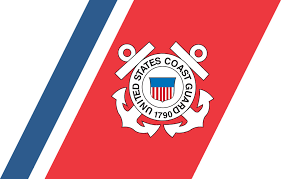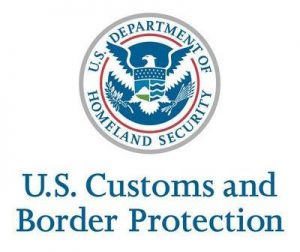SUBJECT: 24 HOUR RULE – ENFORCEMENT STRAGEGY
BACKGROUND: On December 2, 2002, U.S. Customs implemented the “24 hour advance of lading foreign regulations” governing containerized and some break-bulk cargoes. Enforcement of these regulations was delayed until February 1, 2003, when Phase One of the Enforcement Strategy was initiated. Under Phase One, 15 ports of entry began identifying egregious violations of the cargo description data. Such egregious violations could result in the issuance of a “no load” message forbidding the lading of the subject cargo onto a vessel destined for the United States. The Second Phase of the Enforcement Strategy will be implemented on May 4th, 2003.
MEETING: An informed compliance trade meeting will be held on Tuesday, May 6th, 2003 in room 223 of the U.S. Customhouse (located at 423 Canal Street) starting at9:30 a.m. Phase Two of the Enforcement Strategy will be discussed.
24 HOUR RULE – ENFORCEMENT STRAGEGY, PHASE TWO:
Beginning on May 4th, 2003, the Bureau of Customs and Border Protection (CBP) will initiate the following enforcement actions:
- ALL CBP ports nationwide will begin issuing ‘no load’ messages for egregious violations of the cargo descriptions presented to CBP. Any ‘no load’ actions will be coordinated with the National Targeting Center (NTC) to ensure uniformity. Invalid and valid cargo descriptions are clearly listed in the Frequently Asked Questions document (question #30) found on the CBP website at www.CBP.gov. The major goal of this initiative is to require that the valid description be input by the carrier/NVOCC in the cargo description field and no other, including marks and numbers. Additionally, CBP is encouraging that the relevant description of cargo be placed in the beginning of the first or second description line of the manifest, or the HTS field as appropriate.
- Also on May 4, 2003, CBP ports will be authorized to issue monetary penalties for egregious violations of timeliness. Seaports will be responsible for the review and enforce the timeliness of cargo declaration submissions. The selection of targets will be coordinated through the NTC. The issuance of penalties will also be coordinated and approved through Headquarters.
Following these actions, on May 15th, 2003, additional enforcement activities will be initiated as follows:
- On May 15, 2003, seaports will also take enforcement action on egregious Consignee name and address violations leading to issuance of Headquarters approved “Do Not Load” messages. Consignee description requirements are relatively clearly defined, yet CBP is still experiencing egregious errors including fields left blank, or the use of “To Order” and “To Order of Shipper” without corresponding information in the consignee field (e.g., a bank’s name and address) and notify party field or consignee name with no address, incomplete address (only city and state) or an invalid address.These selected non-compliant cargo targets will be referred to the NTC for coordination and approval prior to the issuance of the “Do Not Load” message to the automated carrier or NVOCC. When selecting non-compliant cargo, CBP realizes that Foreign Remaining On Board cargo and some inbond movements will not have a U.S. or standardized addresses.
- Also on May 15, 2003, CBP ports will be authorized to issue monetary penalties for Foreign Remaining On Board (FROB) cargo that has an invalid cargo description and that has been loaded on board the vessel without providing CBP a 24-hour time frame to place a “Do Not Load” message on the cargo. Carriers and NVOCC’s may be subject to penalties and liquidated damages per each vessel arrival for violation of manifest requirements. On behalf of carriers, masters of vessels will be assessed penalties per vessel arrival in accordance with 19 USC 1436 (penalties of $5,000 per first violation and $10,000 for any subsequent violation attributable to the master). NVOCCs will incur claims for liquidated damages of $5,000 per vessel arrival in accordance with 19 CFR 113.64(c) and 19 CFR 4.7(b) and/or 19 CFR 4.7a(c). If there are multiple automated NVOCCs in violation of the FROB requirements on a vessel arrival each automated NVOCC may be assessed liquidated damages.The Bureau of Customs and Border Protection in the Port of New Orleans hopes that by holding this informed compliance trade meeting, instances of non-compliance can be reduced.
Questions regarding this trade meeting can be directed to the Office of the Port Director, at (504) 670-2391.


